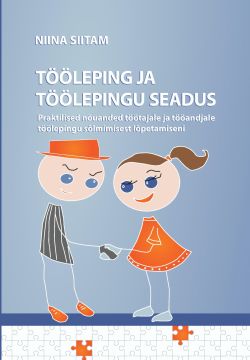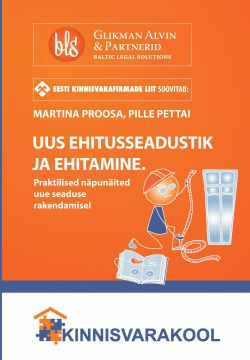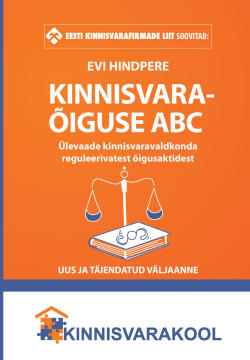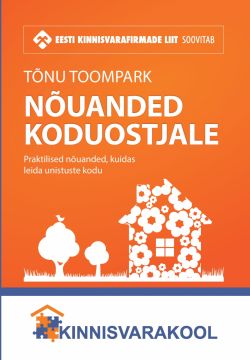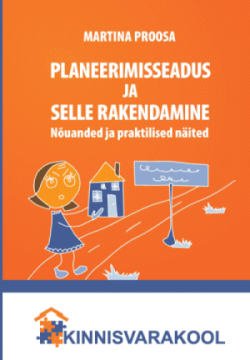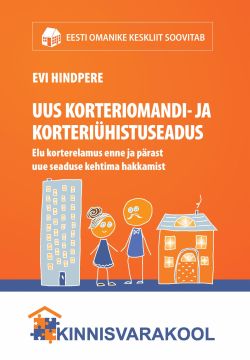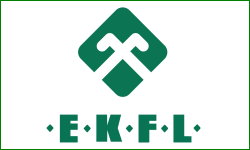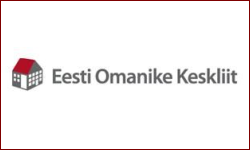In amongst all the up-to-date news and developments about the real estate market, and everything else in Tallinn and Estonia, we like to provide concrete advice to those who are thinking of buying in Tallinn. After all, property is our passion so we ought to give vent to that now and again!
To that end, here’s some advice on buying here, which we’ll provide free, ‘cos we’re like that. We might even cover the dos and don’ts of letting out property here soon as well so watch this space. Even if you have already invested here, you will find some useful tips to help you navigate the small but thriving real estate market here.
We have taken the perspective of a potential overseas investment buyer in Estonia (i.e. buy-to-let) but the following is largely also applicable to those who are thinking of buying a part-time (such as holiday home or pied à terre in Tallinn) or indeed full-time dwelling in Estonia.
Please note that this post is for information only and should not be taken as legal or financial advice. Please contact a legal or financial professional for that! (We can help get you in touch). This information is provided free of charge and, whilst we strive for accuracy in all things, Tallinn Property and Goodson & Red accepts no responsibility for any loss or other misfortune arising after acting upon this advice.
That said, we are confident that the information provides an accurate consumer-eye picture of the residential real estate climate in Tallinn and strongly advise you to bear it in mind, especially since there is unlikely to be any similar information avaiable in English, so read on..
1) Find a reliable partner who will protect the buyer’s (i.e. your!) interests. The best indicator is a good friend, acquaintance, a positive experience or a recommendation from someone in the know here. If you are not sure then visit at least a couple of estate agents/brokers to get a better idea of different work cultures and strengths.
Some of the agents here in Tallinn are large and well established, including Uusmaa and 1Partner, which have a large volume of items, a big staff, offer a range of services and have plenty of knowhow (Uusmaa was founded in 1993 not long after Estonia became independent, and is nationwide).
Some other bigger agencies in Estonia to think about include Pindi-Eri, Arco Vara, DTZ (which is not so strong in Tallinn) and Domus.
Bigger is not necessarily better of course, and there are a plethora of smaller and middle-sized agents in Tallinn and Estonia in general (at least 300 across the country). The range and quality of services will vary, however, and it is important to understand that the estate agent sector is not so heavily regulated as it is in, say, the UK. Some agents, particularly the bigger ones, are heavily sales-driven; the very small outfits may simply be an individual registered as a company to market a couple of properties belonging to themselves or friends and relatives. In general not all agents are experts in dealing with overseas investors and focus more on the domestic market so it is important to establish their credentials here too.
2) Unless you speak Estonian it is naturally important to find an agency conversant in a language which you understand. Most of the bigger agents, indeed most professional-aged people, will speak English, and most agents will speak Russian too. It’s not hard to find Finnish speakers here either, and not unheard of for agencies who have staff conversant in German, Swedish, Spanish or Italian either.
Most of the bigger agencies will have websites in two to three of these languages (usually English is one of them, although not all of the material in Estonian is necessarily translated) and often each individual agent will list the languages he/she can speak.
3) Be sure of the current market situation. The market is relatively transparent compared with some other areas of the CEE zone; one useful source is the two big real estate portals here, www.kv.ee and www.city24.com. These hold most of the properties that are on the market in Estonia (city24 also covers Poland, Sweden, Finland, Lithuania and Latvia) are searchable (in English) by region of Estonia, district (in the case of Tallinn) number of rooms, size, price and many other variables. Listings usually come with multiple, good quality photos although you should of course visit a property in person before buying; the agent who is acting for the property will be listed. Of course some properties will be listed with multiple agents.
Please note that just because a property is listed on kv.ee or city24.ee it doesn’t mean that the asking price is necessarily going to be reasonable, and be sure to look at the date the advert commenced. If a property has been up for more than a few months it is likely there are some issues either with price or something else. At the time of writing the average price per square metre for property in Tallin was a little over 1 000 Euros/square metre, rising to around 1 800 Euros/Square metre in central Tallinn (usually somewhat more than that in the Old Town itself, with Toompea being generally the most prestigious part of the already-prestigious Old Town) and the sought-after residential district of Pirita.
The figure for the whole of Estonia was 700 Euros/Square metre at the time of writing although there are naturally regional variations, with Tartu and the resort town of Pärnu, for example, being more expensive than the towns in the eastern-most parts of the country.
A bewildering array of statistics is published every month by one of the big hitters, Pindi-Eri, although the catch is it’s all in Estonian. This includes figures for average prices, sizes, number of owners etc. for all areas of Estonia going back many years (transparency, remember!). Some more comprehensive information is available on real estate expert Tõnu Toompark’s adaur blog (again usually in Estonian) together with Goodson & Red’s quarterly Market Review (and this IS available in English!) plus of course this blog.
4) When you have found an agent, obtain from this real estate partner an accurate picture of the service they provide and the fees they charge buyers for their services. It is normal for buyer’s agents to charge something. This shouldn’t be much more than a two to three per cent commission, or a fixed fee plus commission, or purely a fixed fee, but it varies by agent and also type of property.
It would often work in the buyer’s advantage to go for a fixed fee, since with a commission, it is not in the agent’s interest to get a lower price since they would be losing out on commission in so doing. At the same time this fixed fee might be split between an initial sum and a ‘bonus’ sum payable on completion of sale. A ballpark figure fixed fee would be a around 1 000 to 2 000 Euros for the initial fee. The bonus will often be pegged to the value of the property and could be anything from around 500 Euros for a small property to 3 000 or so for a high end property. In any case the fixed fee should equate to a commission of around two to three per cent, without the disincentive noted above.
Beware of agents who promote a ‘discount’ on their fixed fee or commission if the selling price is reduced by a certain amount from the asking; this could encourage the buying agent to collude with the seller to set the initial asking price higher than it is worth to give the impression of obtaining a good price. Thankfully such practices in Tallinn are now the exception rather than the norm and not something which larger, reputable agents would be likely to fall into, but as an overseas national it is important to exercise due care and obtain the advice and assistance of a local acquaintance where possible, even simply for language issues. On the plus side, Estonians are quite flexible, if you see a property you like but the buyer’s fee structure doesn’t quite work for you, always speak up and ask how this can be negotiated.
5) Become acquainted with all factors relating to the buying process. These include notarized contract forms, state orders of magnitude, notary fees etc. In general this is quite a straightforward affair in comparison with the UK for example, and it is not necessary to hire a lawyer or obtain a full survey unless you wish to.
Ask the partner to identify local laws related to real estate acquisition / possession / management. Depending on where you are from, there may be restrictions to buying property (if you are an EU citizen for example, there are not). Also be sure to check whether your country of origin has a double taxation agreement with Estonia; if it does not, you are not liable for taxation on rental income in your own country.
In general if you on the ground in Tallinn or Estonia it is possible to view a property in person in exactly the same way you would do in the UK or US, though you can usually (not always) expect a refreshing lack of hard-sell or ‘estate agent-ese’ in comparison. Making an offer can be done verbally although this does not make it legally binding; the seller might come back with a counter offer, although note that some sellers have little leeway in the negotiation process (due to many people borrowing during the boom time at a large loan to value rate at higher price levels than today). Naturally you should have an idea based on point 3) above plus your own reasearch as to whether you are getting a good deal even at the asking price, and there are some bargains around.*
6) Explore all options for finance. If you are able to borrow from Estonian banks (for instance an EU citizen should be able to) it is worth investigating because they are offering low rates even by present-day standards (as low as three per cent). The real estate portals kv.ee and city24.ee noted in point 3) above carry mortgage calculators which can give the monthly payments due on a property. Banks are much more stringent in their terms than the boom period of course, and 100 per cent loan to value mortgages are a thing of the past, though that is likely to be the case everywhere. In any case the mortgage application process in Estonia is quite straighforward and decisions are usually made quite quickly. If you are based in another country it may be possible to use your income there to determine how much you can borrow; with Estonian real wages still comparatively low by EU standards you may find you can borrow much more than a local Estonian could, however it is a good idea to exercise restraint and not overstretch yourself.
7) When considering buying an investment property, do think about the type of property you are investing in. Is it likely to be suitable for a student, foreign national or young professional(s)? How old is the building? What are communal areas like? Are there likely to be any planning permission issues? Is there much storage? Is there a parking space? A garden? What are the communal charges? Is it located near to public transport links, retail outlets and other facilities? Again, your agent will be able to advise you on this.
8) Location, location, location. Something of a cliché but true nevertheless. Experience shows that the best chance of investing in a successful rental property falls within the central part of Tallinn. This incorporates the old town, the ‘Kesklinn’ (city centre) and to a certain extent the areas of Kadriorg and Kristiine, to the east and west of the centre respectively, so you should really confine your search to these areas of Tallinn. Also worth considering are areas which are “up and coming”, most notably the waterfront from the harbour westward to the Kalamaja district, fast becoming the bohemian quarter of Tallinn with restaurants, cafes as well as residential developments sprining up, and still within walking distance of the centre; your broker will be able to advise you on the current landscape.
We are not saying that properties outside this zone are necessarily going to be untenable, but the distant location together with type of property (which tends to veer between either Soviet era apartment blocks or older wooden houses which would tend to suit local families, to larger, detached houses with large gardens which would be difficult to let out and manage) make it unlikely. Outside of Tallinn the scope is somewhat more limited for investment property, but your agent will be able to advise you nevertheless.
9) When buying a newly-refurbished apartment, do not assume that the kitchen, and even the bathroom, will be fully installed. Often you will have to by the fittings separately and get them installed, so be clear as to what is and is not included in the price and the time-frame within which the property will be ready for habitation.
10) When employing the services of workmen be sure to get recommendations from your agent or other contacts that you may have in the country. Self-explanatory really, but please note that due to economic factors many of the country’s best construction workers, craftsmen, carpenters, plumbers etc. are out of the country at any given time, sometimes only on a temporary basis but often (particularly in Finland) semi-permanently at least. For this reason it is crucial you get recommendations. On the other hand don’t let this put you off any property which you see as having potential but which needs work; part of Estonia’s economic recovery at the time of writing lies in a mini-construction boom, with rising prices in construction materials ensuring that there are people willing and able to work in this field.
*Please note that the above info does not include the case of foreclosed properties, which are generally in the possession of the banks and are often being auctioned off. Having said that much of the excess here has already been taken up and it is difficult to find bargains today, not to mention the fact that there might be issues regarding existing tenants or former owners still inhabiting the dwelling. For this reason we do not recommend inexperienced investors in this region intentionally pursuing this route.
 Andrew Whyte
Andrew Whyte
Tallinn Property by Goodson & Red




